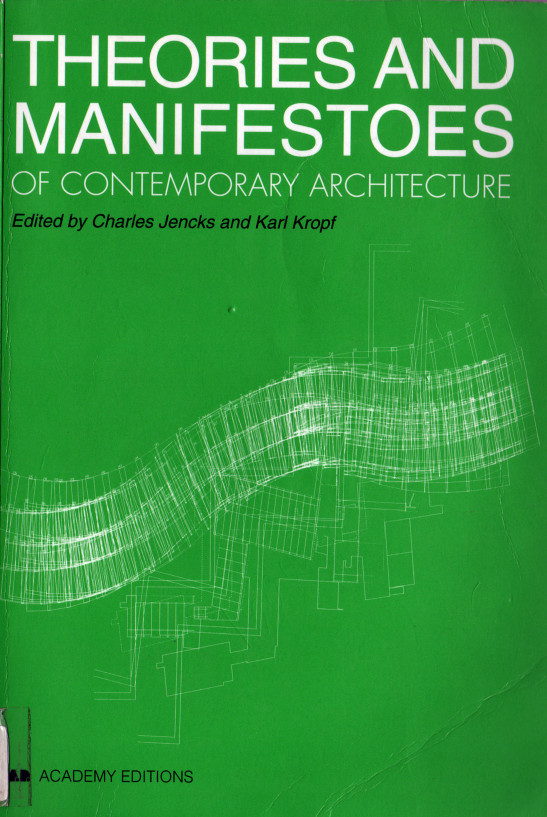Laura Bear, Karen Ho, Anna Tsing, Sylvia Yanagisako: Gens: A Feminist Manifesto for the Study of Capitalism (2015)
Filed under manifesto | Tags: · anthropology, capitalism, feminism, gender, kinship, manifesto
“Our title signals a major redefinition of the multilayered historical meanings of the term gens. Gens began as the Roman concept of a family unit descended from a common male ancestor and was scaled up to social distinctions like aristocratic lineage. It was transformed by Lewis Henry Morgan to found the anthropological study of kinship and reveal the “original” matriarchal origins of community. Friedrich Engels then drew on Morgan to argue that the patriarchal form of gens led to the end of matriarchal systems. Gens is also, of course, the etymological root of gender, genus, genre, generations, and generate. We find this term broadly helpful because it carries a long history of the appropriation of human and non-human life-forces by social forms. Its varied usage inspires reflection on the depictions of these life-forces that in turn contribute to forms of social inequality. Moreover, it specifically refers to a history of contradictions between male authority and female kinship ties that signals the mix of capture and generativity that characterizes all social power. Finally, by adopting this term, we play with the irony that a patriarchal unit provides the root for the word gender even as we found our approach to capitalism on a more liberating (but hidden) ancestry of feminist analyses of gender, kinship, and race, as well as other forms of epistemological insights garnered from the margins.” (opening paragraph)
Part of the series Generating Capitalism, Fieldsights – Theorizing the Contemporary, Cultural Anthropology Online, March 2015.
Commentary: Donna Haraway (EnviroHumanities 2015, see note 16)
Comment (0)Scott MacKenzie (ed.): Film Manifestos and Global Cinema Cultures: A Critical Anthology (2014)
Filed under book | Tags: · aesthetics, archive, avant-garde, cinema, colonialism, decolonization, documentary film, feminism, film, film history, gender, manifesto, museum, pornography, postcolonialism, queer, sexuality

“This is the first book to collect manifestos from the global history of cinema, providing the first historical and theoretical account of the role played by film manifestos in filmmaking and film culture. Focusing equally on political and aesthetic manifestos, Scott MacKenzie uncovers a neglected, yet nevertheless central history of the cinema, exploring a series of documents that postulate ways in which to re-imagine the cinema and, in the process, re-imagine the world.
This volume collects the major European “waves” and figures (Eisenstein, Truffaut, Bergman, Free Cinema, Oberhausen, Dogme ‘95); Latin American Third Cinemas (Birri, Sanjinés, Espinosa, Solanas); radical art and the avant-garde (Buñuel, Brakhage, Deren, Mekas, Ono, Sanborn); and world cinemas (Iimura, Makhmalbaf, Sembene, Sen). It also contains previously untranslated manifestos co-written by figures including Bollaín, Debord, Hermosillo, Isou, Kieslowski, Painlevé, Straub, and many others. Thematic sections address documentary cinema, aesthetics, feminist and queer film cultures, pornography, film archives, Hollywood, and film and digital media. Also included are texts traditionally left out of the film manifestos canon, such as the Motion Picture Production Code and Pius XI’s Vigilanti Cura, which nevertheless played a central role in film culture.”
Publisher University of California Press, 2014
ISBN 0520276744, 9780520276741
xxi+651 pages
via slowrotation
Author’s talk (video, 2017, 20 min).
Reviews: Wheeler Winston Dixon (Film International), Matthew Hunt, Bill Nichols (Film Quarterly).
PDF, PDF (updated on 2019-7-14)
Comment (0)Charles Jencks, Karl Kropf (eds.): Theories and Manifestoes of Contemporary Architecture (1997)
Filed under book | Tags: · 1960s, 1970s, 1980s, 1990s, architecture, city, history of architecture, manifesto, modernism, postmodernism, theory, urbanism

A survey of 120 texts on architecture from the late 1950s up to the mid-1990s, presented in excerpts organised into five sections.
Publisher Academy Editions, Chichester, UK, 1997
ISBN 0471976873
312 pages
via hindmnj
See also Ulrich Conrads (ed.), Programs and Manifestoes on 20th-Century Architecture, 1964/1970.
Comments (2)
